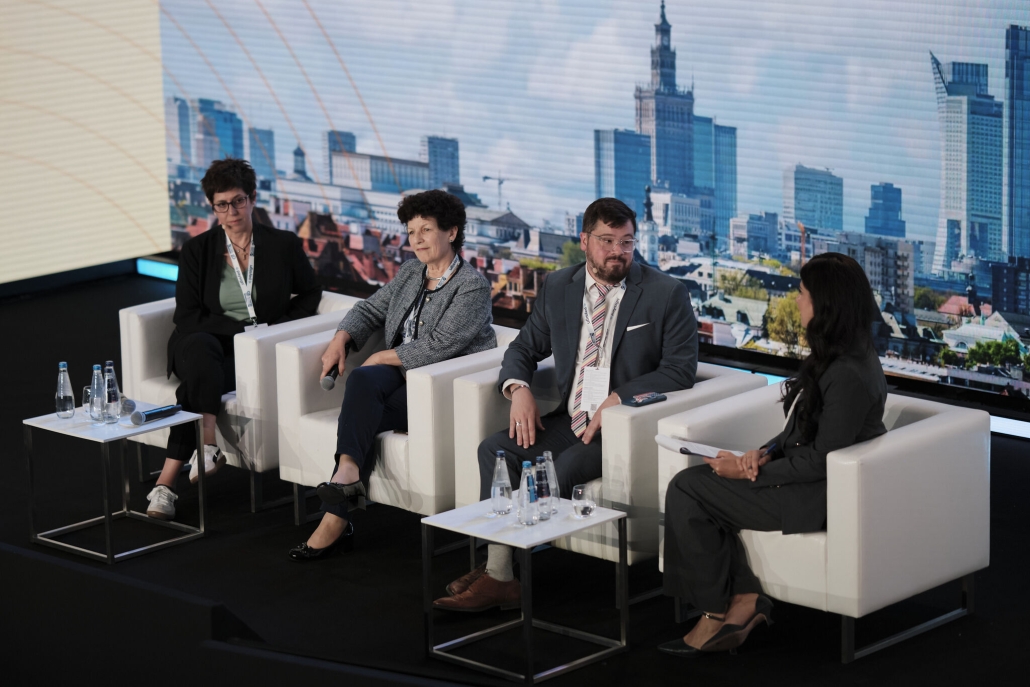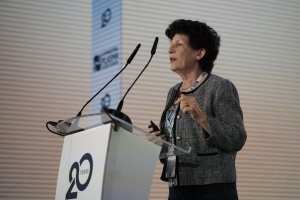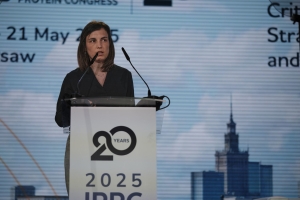IPOPI speaks at the International Plasma Protein Congress (IPPC) in Warsaw

The International Plasma Protein Congress (IPPC) was held in Warsaw (Poland) on May 20 – 21, 2025.
The Congress, which celebrated its 20th edition, had a strong presence of IPOPI. Martine Pergent, IPOPI President, shared valuable insights on the vital role immunoglobulin replacement therapies play for persons living with primary immunodeficiencies. Martine further explained how immunoglobulins play a key role for patients in need of these therapies and how many challenges persist for patients: lack of diagnosis, insufficient universal coverage, supply difficulties, partial or complete unavailability in many countries.
Leire Solis, IPOPI health policy and advocacy director, joined session 2 on medical supply chains, prevention of disruption and improving healthcare system resilience. Leire emphasised the critical role of patient organisations and patient engagement in tackling shortages of plasma-derived medicines.
Patient representatives Sian van den Bogaerdt-Rance and Janine Bastiaans (from the Dutch PID patient organisation, SAS), Tolis Topalis (from the Greek PID patient organisation, Galinos) and Juçaíra Giusti (from the Brazilian PID patient organisation, Eu Luto Pela Imuno Brasil) also participated in the Congress and joined the lively discussions during the sessions and networking breaks.
In addition, IPOPI MAP member and esteemed collaborator, Prof Isabelle Meyts, received the Joachim Hilfenhaus Award. Prof Meyts received this recognition for her research activities focused on translational research in PID, focusing on the genetic and functional characterisation of known and novel PID and adenosine deaminase type 2 deficiency.
This 20th edition of IPPC brought together a wide range of stakeholders, including industry, national and European regulators and policy makers and patient representatives, to discuss the evolving landscape of plasma-derived medicinal products. IPOPI is deeply committed to continuing to provide awareness, education and advocacy programmes and support worldwide on the importance of immunoglobulin replacement therapies.




